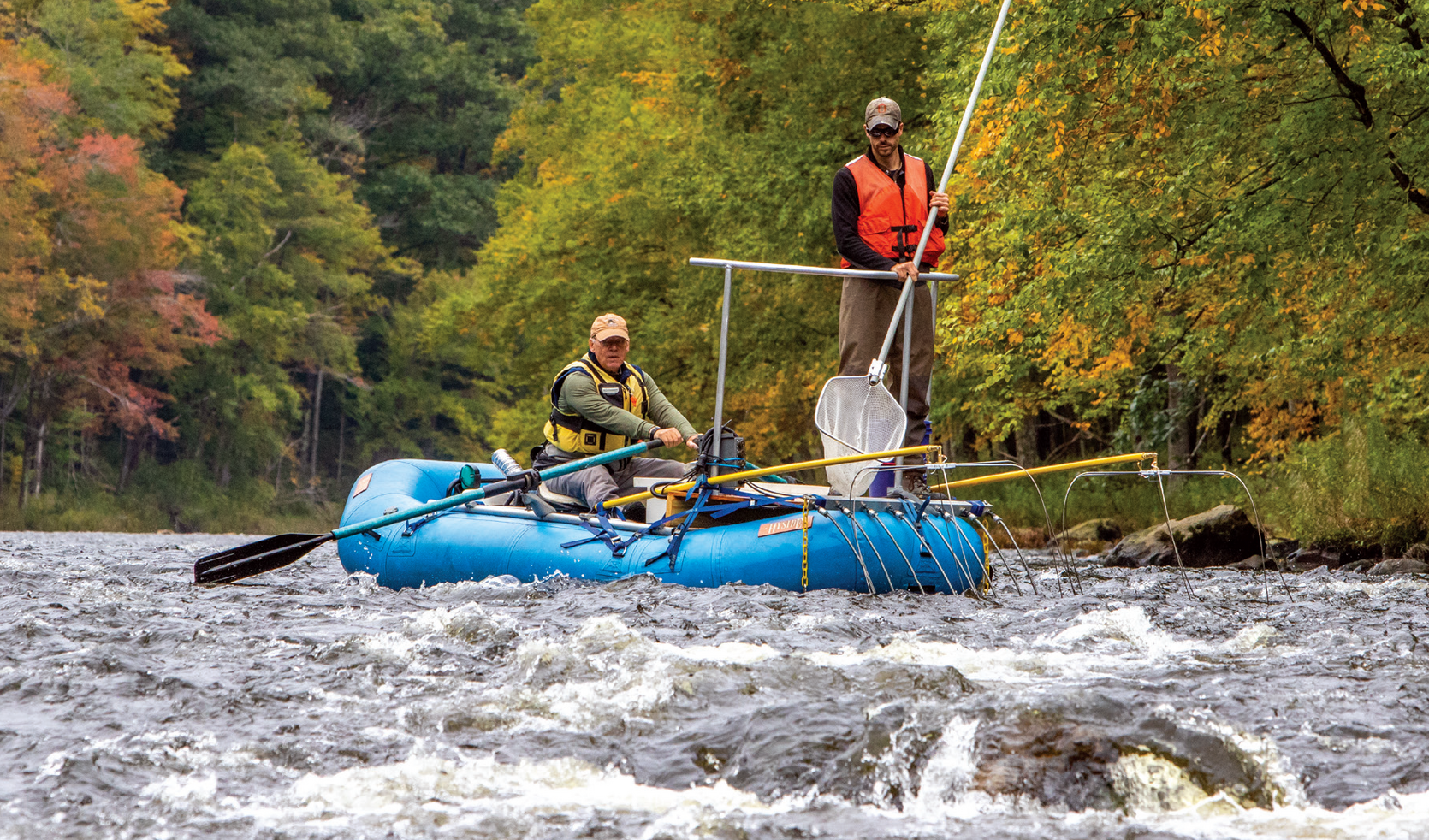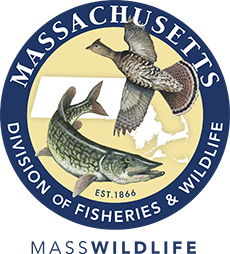- Division of Fisheries and Wildlife

MassWildlife biologists primarily use two different types of equipment to conduct fisheries surveys. For lakes, ponds and large, deeper rivers, a motorboat outfitted with a generator, booms, and “droppers” is the standard. In brooks, streams, and smaller rivers, a team of biologists navigate the streambed on foot carrying backpack shockers and electrical wands to temporarily stun and collect fish. But in rock-strewn fast-moving rivers like the Millers, Deerfield, and others, neither a motorboat nor backpack shockers are practical. As a result, numerous reaches of rivers are inaccessible and go unsurveyed.
Biologists seriously dislike gaps in data and a recent donation of a customized electro-fishing river raft by a group of committed conservationists is designed to help MassWildlife fill this critical sampling need. The river raft will make it possible for MassWildlife fisheries biologists to conduct fish surveys in previously inaccessible habitats. This generous donation came from a group of Trout Unlimited (TU) members who have been working with MassWildlife and other scientists on studies of brown trout reproduction on the Deerfield River. The whitewater river raft is outfitted with a standing platform, booms, droppers, generator equipment, and livewell. “You run a reach of river with two people, one rower to navigate the river, the other biologist to stun and net the fish,” explains Adam Kautza, MassWildlife’s Coldwater Fisheries Project Leader. “After passing through a particular reach, we pull off to the side of the river, measure, weigh and gather other data from the netted fish, release them back in the water and then move on to the next river segment.”
MassWildlife biologists are already using the raft as part of a brown trout study that will answer an important question: Are wild-hatched brown trout surviving and successfully reproducing in the Deerfield River? The study will also give biologists an understanding of the abundance, growth rates and other important biological information on brown trout in the Deerfield River system. Multiple survey trips will be necessary over a large area of the river and the raft makes that coverage possible. In the future, the raft will be pressed into fish survey service on other rocky rivers such as the Hoosic, Westfield, and Millers Rivers.
A variety of people, businesses, and groups deserve thanks for their contributions to MassWildlife's new river raft. The 12-foot river raft was personally owned and donated by Jim Dowd, an active member of the Deerfield River Watershed Trout Unlimited (DRWTU) chapter. The raft’s custom-built standing platform was manufactured by Don Barnes, a Millers River TU member and president of Regal Vise, a family-owned business producing fly tying vises. The DRWTU and the MA/RI Council of Trout Unlimited combined resources to purchase booms and the electrical array/droppers. Finally, the Greater Boston TU chapter contributed fish tags, which will be used in the Deerfield River Brown Trout study. A shout-out to Kevin Parsons, President of the DRWTU chapter, Bill Pastuszek, President of the Greater Boston TU chapter, MA/RI Council President Paul Beaulieu, Council Secretary/Treasurer Mike Vito and Gary Crago of the Trout Unlimited National Council for their leadership. Thank you for making a key contribution to conservation, providing MassWildlife with the means to further our understanding of some of our most pristine rivers and the fish communities inhabiting them.
